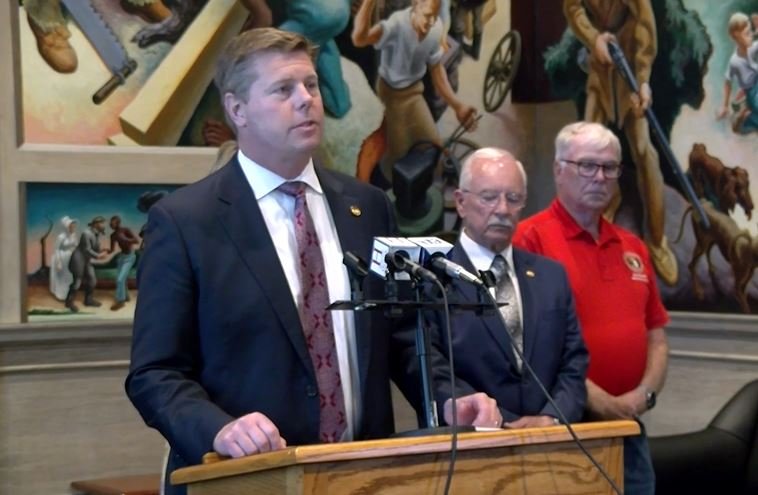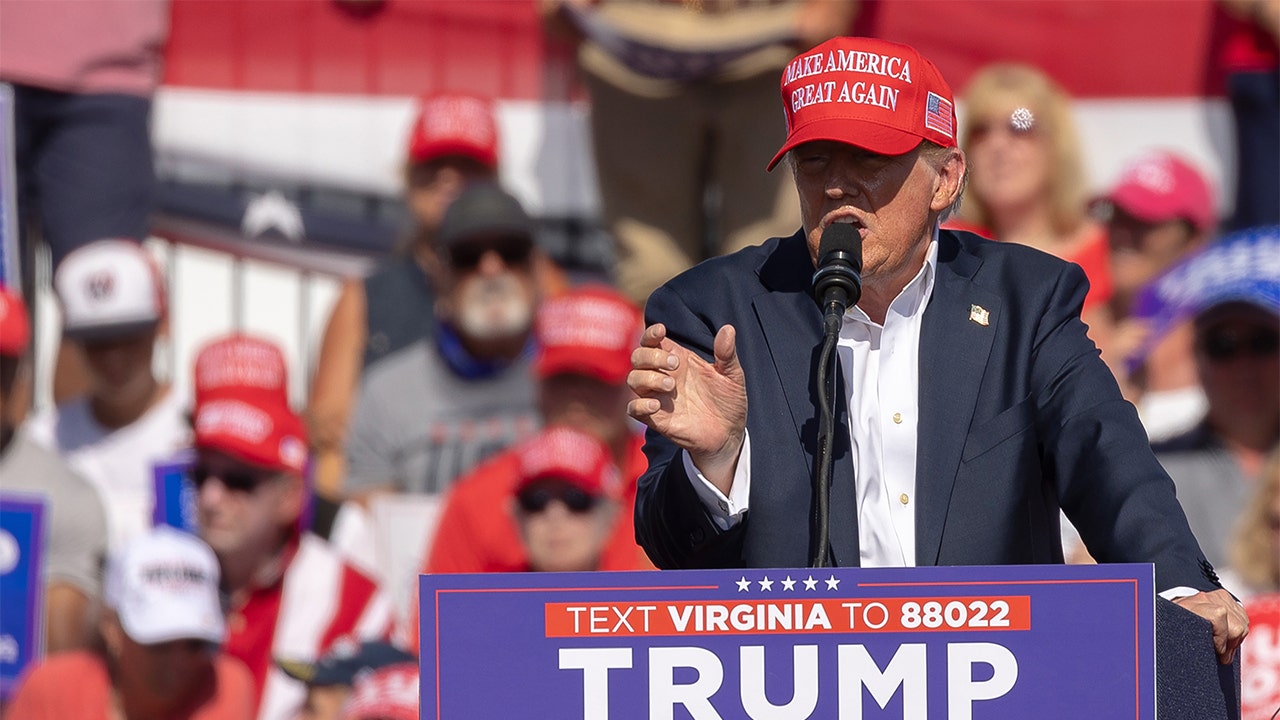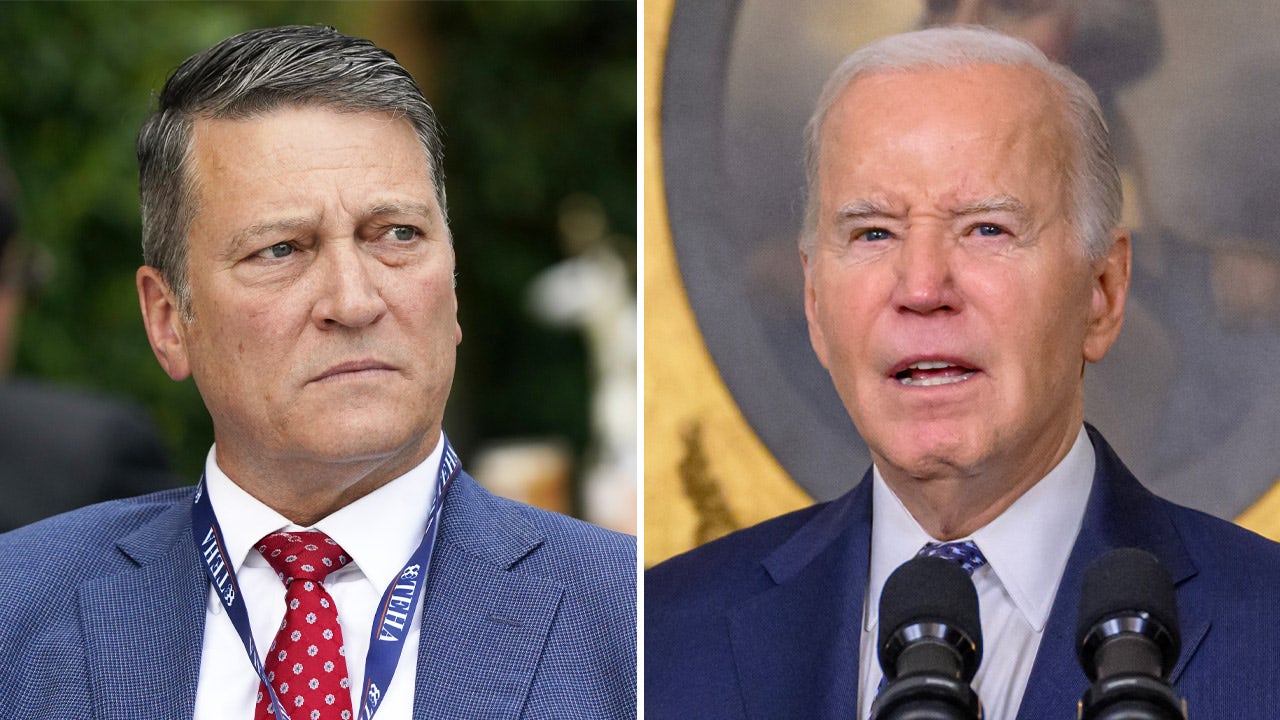World
German Film Industry Anxiously Awaits New Berlinale Director Amid Swirling Rumors

The German film industry is eagerly awaiting the appointment of the Berlin Film Festival’s new director, expected to be announced tomorrow, and as the guessing game surrounding the choice shifts into high gear, one thing looks increasingly clear: the new head will face considerable financial and political challenges at the Berlinale.
Speculation in the local industry has been rife with likely candidates to succeed Carlo Chatrian and Mariëtte Rissenbeek, who have co-led the Berlinale as artistic and executive directors since 2020 and will step down after this year’s edition when their respective mandates end.
A number of potential contenders have now quashed those rumors, among them Matthijs Wouter Knol, CEO and director of the European Film Academy, who made it clear to Variety that he was not in the running and was very content in his current post; Kirsten Niehuus, head of funding org Medienboard Berlin-Brandenburg, who said she was not a candidate; and Unifrance chief Daniela Elstner, who denied the speculation as false.
Also seen as a possible pick was Munich Film Festival director Christoph Gröner, who likewise appears happy to remain where he is.
“We are of course flattered by this appraisal, but I am at the helm of the Munich Film Festival along with [artistic co-director] Julia Weigl,” Gröner told Variety. “In view of the recent developments at the Berlinale, with a reduction in sections for German programming, we define ourselves as No. 1 for German filmmaking — and therefore also want to increasingly appeal to the international industry in the middle of summer. We can only wish the Berlinale all the best.”
While a completely unexpected selection is certainly possible, other names regularly discussed by industry insiders include Christoph Terhechte, artistic director of the International Leipzig Festival for Documentary and Animated Film (who declined to comment on the rumors); Christian Jungen, artistic director of the Zurich Film Festival; Berlinale programmer Paz Lázaro; and Maria Köpf, who recently stepped down as co-managing director of the German Film Academy. The latter three could not be reached for comment.
The Berlinale has been talented at keeping cards close to its chest. Rissenbeek wasn’t a candidate either when she was appointed to co-helm the festival. She had actually been tapped by the then culture commissioner to find candidates for the post and walked out with the job. If Variety were to come up with a hypothesis based on this recent example, Köpf, who coincidentally just resigned from the German Film Academy, could get the job. Her former co-managing director at the German Film Academy, Anne Leppin, sits on the search committee.
Claudia Roth, Germany’s federal government commissioner for culture and media, triggered a furious international backlash in September with her decision to forego the festival’s dual-leadership structure and instead return to a single director to manage both the artistic and administrative aspects of the event – a move that made it impossible for Chatrian to continue in his role after Rissenbeek decided to step down following the 2024 edition. More than 400 filmmakers and talents, among them Martin Scorsese, Paul Schrader, Béla Tarr, Olivier Assayas, Kirsten Stewart and Margarethe von Trotta, signed a letter condemning the culture commissioner for the move.
Roth then set up the six-member committee tasked with the responsibility of finding a sole director to succeed Chatrian and Rissenbeek that included Leppin, the German Film Academy’s now sole managing director; Oscar-winning director Edward Berger (“All Quiet on the Western Front”); producer Roman Paul (“Paradise Now”); actress and producer Sara Fazilat; State Secretary Florian Graf, head of the Berlin Senate Chancellery; and Roth herself.
Local observers also took Roth to task for not including people with more film festival expertise in her search committee.
Writing in Berlin daily Tagesspiegel, Andreas Busche expressed concern that there was “not a single person on the search committee” with a minimum of experience in international festival operations or at least curatorial expertise.
The Frankfurter Allgemeine Zeitung’s Andreas Kilb likewise addressed the difficulties of finding an ideal new director: “Those multi-talents who combine aesthetic flair with an instinct for film politics, stage presence with skill in dealing with sponsors and who also have a sense of finance are as rare as winning the lottery.”
Whoever takes the reins, the new leadership will have to deal with a precarious financial situation that could be exacerbated by the government’s current budget crisis. A ruling by Germany’s constitutional court last month blocked Chancellor Olaf Scholz’s government from tapping €60 billion ($64.4 billion) in unused pandemic emergency funds for ambitious climate protection measures and other expenditures, blowing a major hole in the federal budget.
The festival already drastically reduced its lineup earlier this year due to rising costs. Its budget last year amounted to some €32.3 million — that included €12.9 million in institutional funding from the federal government, which is expected to reduce that figure to €10.7 million next year. As a result, the state of Berlin has agreed to increase its contribution to the Berlinale from €20,000 to €2 million a year, local newspaper BZ reported. Financing for the Berlinale has been traditionally split three ways between federal funds, ticket sales and sponsorship, which has also reportedly seen significant cuts.
Media watchers like Busche have warned against growing political encroachment over the festival resulting from its funding needs following comments made by Christian Goiny, a representative of Berlin’s conservative CDU ruling party, who said increased financial support should be “accompanied conceptually and in terms of content.”
While the Berlinale has long been seen as a very political festival, there is concern that its artistic integrity could be further compromised if government overseers push for only the right kind of politics and further constrain the new director.
Pointing to Roth’s statement earlier this year that the Berlinale needed a good structure in order to “live up to its claim of being the largest public festival and a political film festival,” Busche stressed that the latter could “not be achieved by decree” but rather by its programming.

World
Ukraine not ready to compromise with Russia, says Zelenskiy aide

World
Dutch king swears in a new government 7 months after elections
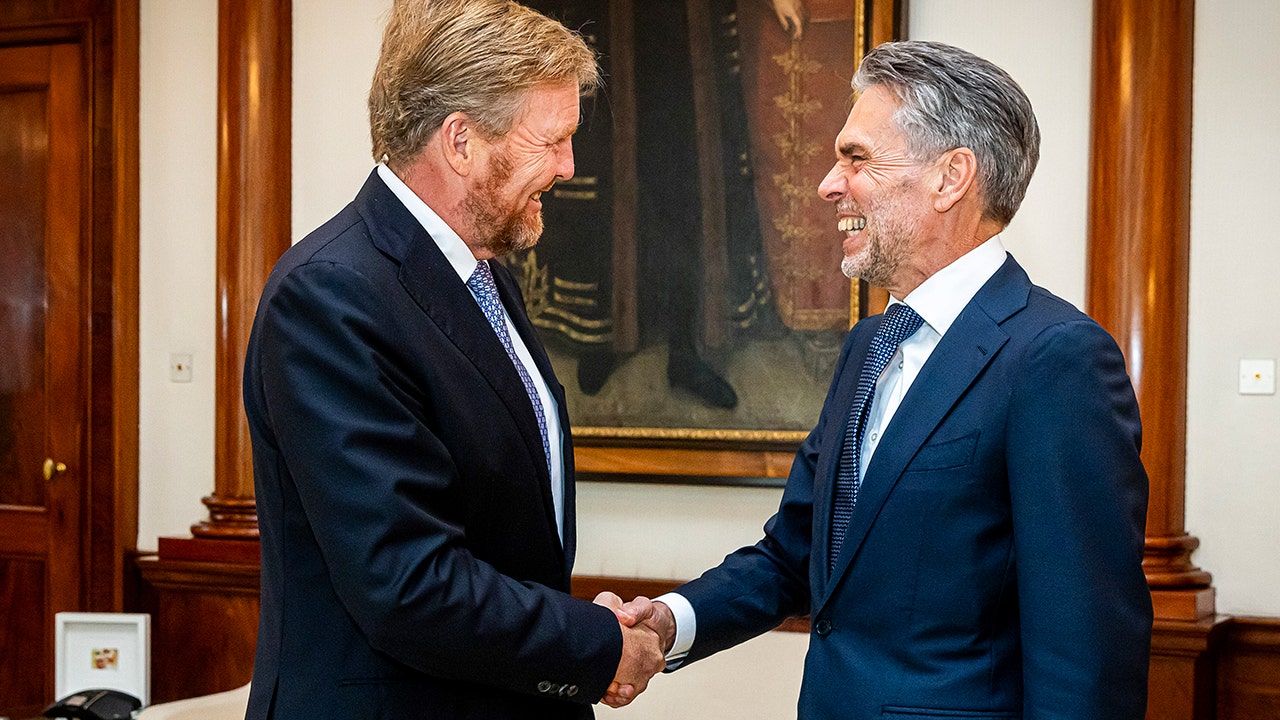
The Netherlands has a different prime minister for the first time in 14 years as Dutch King Willem-Alexander swore in the country’s new government Tuesday, more than seven months after elections dominated by a far-right, anti-Islam party.
Dick Schoof, former head of the Dutch intelligence agency and counterterrorism office, signed the official royal decree at Huis Ten Bosch Palace, saying he “declared and promised” to uphold his duties as the country’s prime minister. The 67-year-old was formally installed alongside 15 other ministers who make up the country’s right-leaning coalition.
FORMER INTELLIGENCE CHIEF NOMINATED AS NEW PRIME MINISTER BY THE NETHERLANDS’ INCOMING GOVERNMENT
The anti-immigration party of firebrand Geert Wilders won the largest share of seats in elections last year but it took 223 days to form a government.
The new coalition quickly faced criticism of its marquee anti-immigration policies — by its own party members, as well as opposition groups. Protesters gathered in front of the palace where the ceremony took place on Tuesday, with one woman carrying a sign asking: “Are we democratically getting rid of our democracy?”
The four parties in the coalition are Wilders’ Party for Freedom, outgoing Prime Minister Mark Rutte’s center-right People’s Party for Freedom and Democracy, the populist Farmer Citizen Movement and the centrist New Social Contract party.
Dutch King Willem-Alexander meets with incoming Prime Minister Dick Schoof, right, in The Hague, Netherlands, Monday, July 1, 2024. (Patrick van Katwijk/Pool Photo via AP)
The formal agreement creating the new coalition, titled “Hope, courage and pride,” introduces strict measures on asylum-seekers, scraps family reunification for refugees and seeks to reduce the number of international students studying in the country.
Opposition from other coalition partners prevented the controversial Wilders from taking the prime minister’s job. During the monthslong negotiations, he backpedaled on several of his most extreme views, including withdrawing draft legislation that would have banned mosques, Islamic schools and the Quran.
For the first time since World War II, the Netherlands is now led by a prime minister who is not aligned with a political party. Before serving as chief of the country’s top intelligence agency, Schoof was previously the counterterror chief and the head of the country’s Immigration and Naturalization Service.
The other government ministers were sworn in Tuesday according to seniority of their departments. One minister, Femke Wiersma who will head the agriculture portfolio, made her declaration in Frisian — the country’s second official language alongside Dutch.
Although the November elections were widely seen as a win for the far right, political youth organizations are already pushing back on the ambitions of the new government. Ahead of the swearing-in ceremony, youth groups from six parties, including two of the coalition partners, called for a softening on asylum plans.
“Although the influx must be limited, it is of great importance that we receive people here fairly and with dignity,” Eva Brandemann, chairperson of the youth wing of the New Social Contract, told Dutch public broadcaster NOS.
Her counterpart in Rutte’s party, which brought down the government last summer over concerns about the number of family reunifications for refugees, said that problems stemmed from administration, not migration.
“The problem will only get bigger if you don’t fix it,” Mauk Bresser, the chair of the People’s Party for Freedom and Democracy youth organization told The Associated Press.
While Bresser thinks the number of refugees coming to the Netherlands should be reduced, his group says those already here should have their claims processed in a timely fashion and be given the opportunity to integrate.
The new agreement slashes the country’s education budget by nearly 1 billion euros — about $1.06 billion — prompting pushback from universities. “Students will not get the education they deserve,” Nivja de Jong, a languages professor at Leiden University, told the AP. She’s part of a group of academics pushing back against the proposed cuts by delivering lunchtime talks about the importance of their research.
The new government will now spend the summer firming the coalition agreement into a governing plan.
The Netherlands isn’t the only country seeing a rise of anti-immigration, far-right views. Last month’s EU elections saw a similar shift, and French voters face a decisive choice on July 7 in the runoff of snap parliamentary elections that could see the country’s first far-right government since the World War II Nazi occupation.
World
Hungary's Orban pushes for ceasefire deal during Kyiv visit
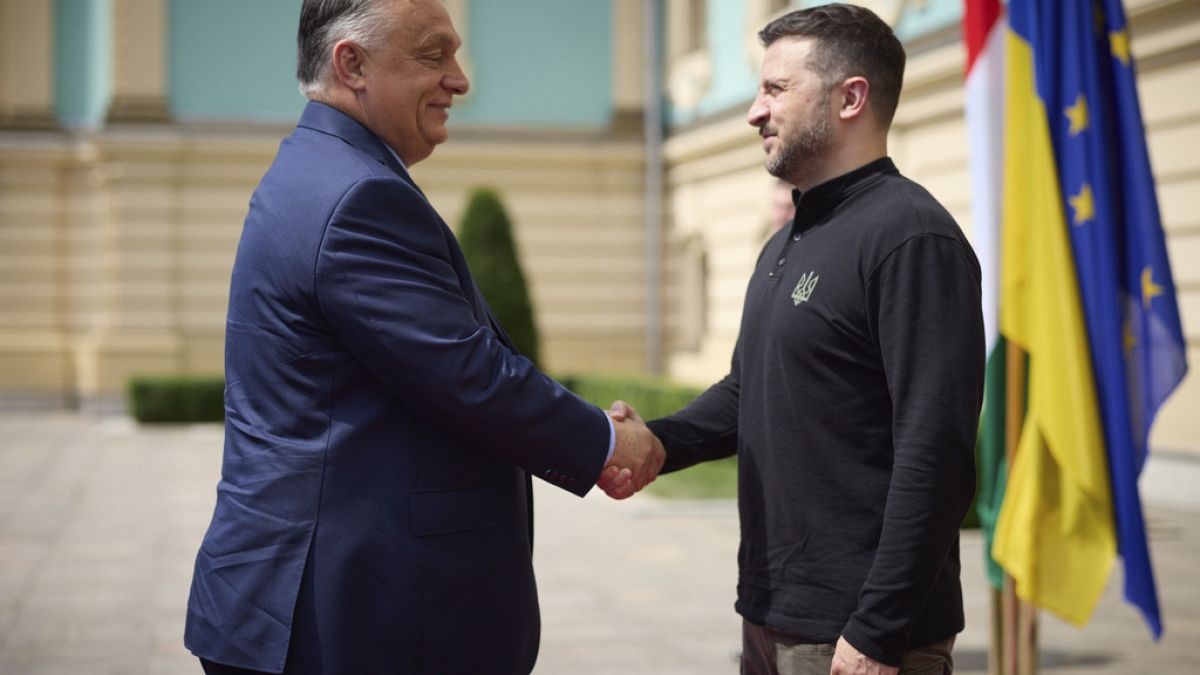
Viktor Orban visited Ukraine’s capital for the first time since Russia’s full-scale invasion in 2022, and offered some suggestions for ending the war.
During his first visit to neighbouring Ukraine since Russia’s full-scale invasion, Hungarian Prime Minister Viktor Orbán told President Volodymyr Zelenskyy on Tuesday that the war was Europe’s “most important issue,” and recommended an immediate cease-fire.
Orban is widely seen as having the warmest relations with Russian President Vladimir Putin among European Union leaders, and his visit was a rare gesture in a tumultuous relationship with Ukraine as Budapest has repeatedly leaned toward Moscow.
The Hungarian prime minister has routinely blocked, delayed or watered down EU efforts to extend assistance to Ukraine and to sanction Moscow over its war, frustrating both Zelenskyy and other EU leaders.
But following talks in Kyiv on Tuesday, Orbán appeared to open the door to a new phase of bilateral relations, saying “the time had come” for such an official visit.
“We are trying to leave the disputes of the past behind us and focus on the period ahead,” Orbán said in brief comments to journalists following the talks. “We would like relations between our two countries to be much better.”
Ukraine and Hungary have had a tense relationship since the war began, with Orbán portraying himself as a champion for peace and calling for an immediate cease-fire and peace talks without expanding on what that would mean for Ukraine’s territorial integrity. He reiterated that call Tuesday, saying it would “provide an opportunity to speed up peace negotiations.”
But Zelenskyy on Tuesday said he was “grateful” for the humanitarian support Hungary had provided to Ukrainian refugees fleeing the war. He also said Hungary could play a role in organising a second iteration of a peace summit that was held in Switzerland last month, which brought together dozens of world leaders.
“Today, we discussed in detail how Hungary can show further leadership in preparing the second summit,” Zelenskyy said, adding that he would like for the event to take place this year.
Orbán’s visit comes the day after Hungary took over the six-month rotating presidency of the EU, a position that has little real power but can be used to set the tone of the bloc’s agenda. Hungarian officials have indicated that they will act as “honest brokers” in the role despite worries from some EU lawmakers that Hungary’s democratic track record makes it unfit to lead the bloc.
During the visit, the Hungarian prime minister acknowledged Russia’s invasion, and said his aim in travelling to Kyiv was “to understand how we could be helpful to Ukraine in the forthcoming six months.”
“The issue of peace is not only important for Ukraine, it is important for the whole of Europe,” Orbán said. “This war, which you are now suffering, has a profound effect on European security.”
The war is “the most important issue for Europe,” he said.
The Hungarian premier, a self-described adherent of “illiberal democracy,” has long been accused by his European partners of dismantling democratic institutions at home and acting as an obstinate spoiler of key EU policy priorities. The bloc has frozen more than €18.6 billion ($20 billion) in funding to Budapest over alleged rule-of-law and corruption violations, and Orbán has conducted numerous anti-EU campaigns depicting it as an overcentralized, repressive organization.
Orbán has also long accused Kyiv of mistreating an ethnic Hungarian minority in Ukraine’s western region of Zakarpattia, a community he has used to justify his refusal to provide weapons to Ukraine or allow their transfer across the two countries’ shared border.
But on Tuesday, Orbán said he sees a “good chance” of achieving progress in the minority community’s affairs and agreed to a proposal by Zelenskyy to set up a Ukrainian school in Hungary for refugees.
“These families need to be taken care of. They need jobs, they need a livelihood, they need security, they need a good school for their children, they need good teachers,” Orbán said.
His visit comes as he seeks to recruit members into a new nationalist alliance that he hopes will soon become the largest right-wing group in the European Parliament. On Sunday, Orbán met in Vienna with the leaders of Austria’s far-right Freedom Party and the main Czech opposition party, announcing the formation of the new group, “Patriots for Europe.”
The trio would need to attract lawmakers from at least four more EU countries to successfully form a group in Europe’s new parliament, which held elections in June. Right-wing nationalist parties across Europe strengthened their position in the elections, but ideological differences over the war in Ukraine and cooperation with Russia have often prevented deeper alliances among some of the parties.
-

 News1 week ago
News1 week agoA Florida family is suing NASA after a piece of space debris crashed through their home
-
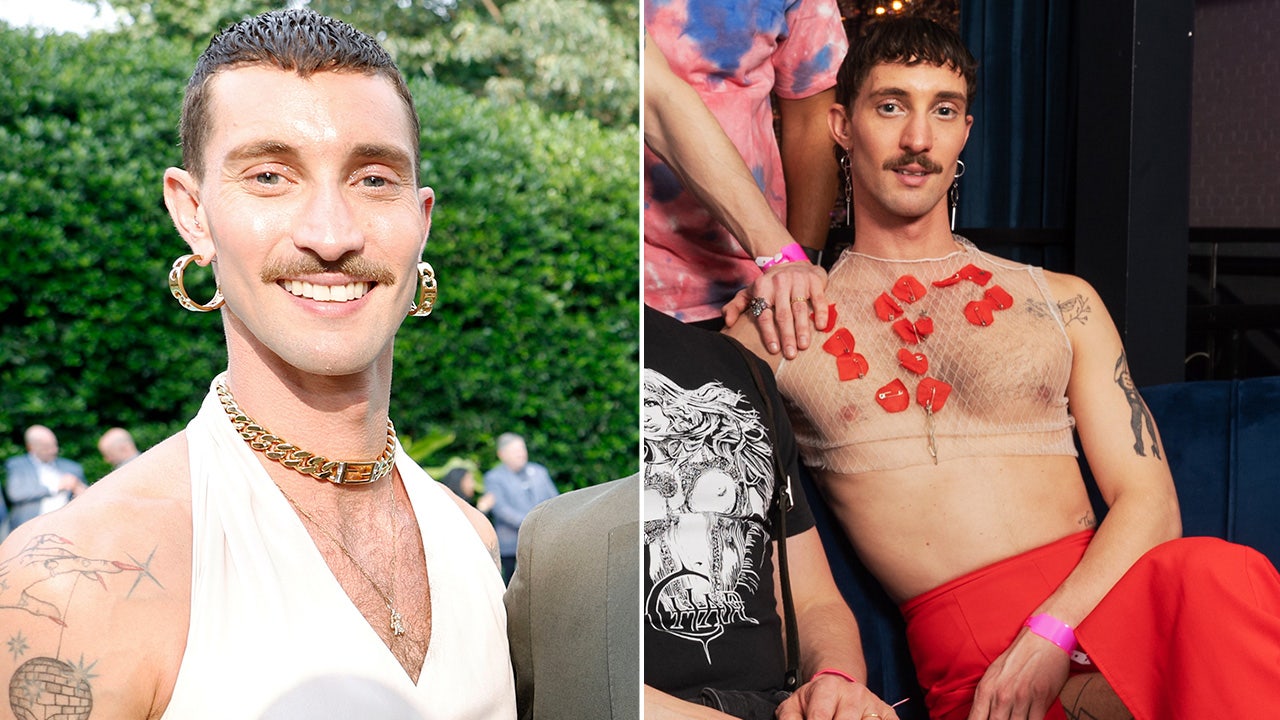
 Politics1 week ago
Politics1 week agoBiden official says past social media posts don’t reflect ‘current views,’ vows to support admin ‘agenda’
-

 World1 week ago
World1 week agoNew Caledonia independence activists sent to France for detention
-

 World1 week ago
World1 week agoIsrael accepts bilateral meeting with EU, but with conditions
-

 World1 week ago
World1 week agoNetanyahu says war will continue even if ceasefire deal agreed with Hamas
-
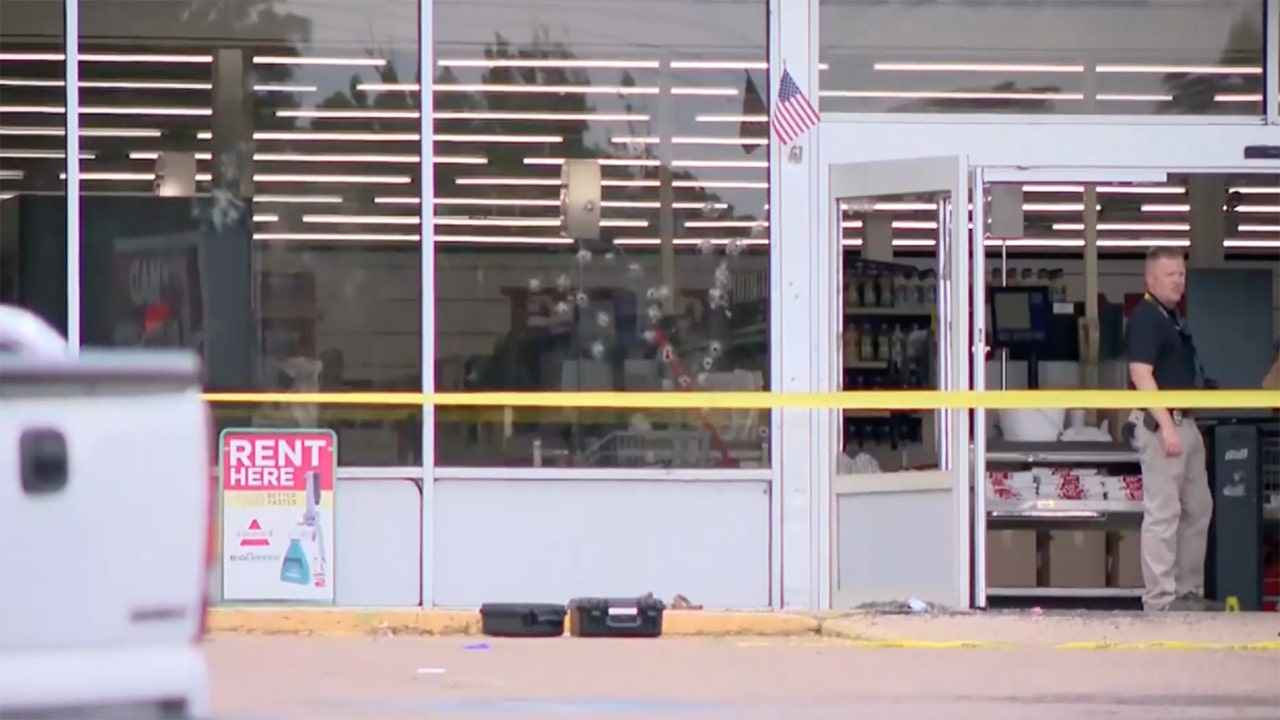
 News1 week ago
News1 week agoArkansas police confirm 4th victim died in grocery store shooting
-
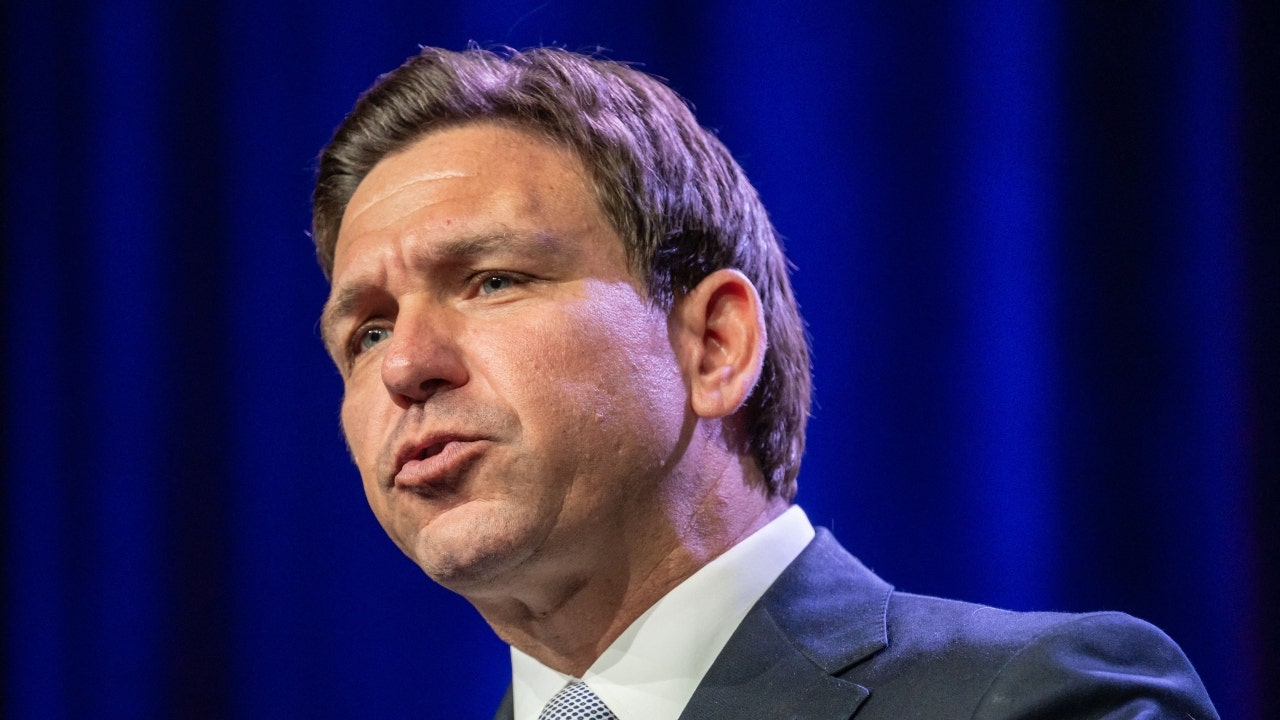
 Politics1 week ago
Politics1 week agoDeSantis signs bill allowing residents to kill bears, vetoes bill that fines slow left lane drivers
-

 News1 week ago
News1 week agoWoman accused of trying to drown Muslim child in Texas in possible hate crime





